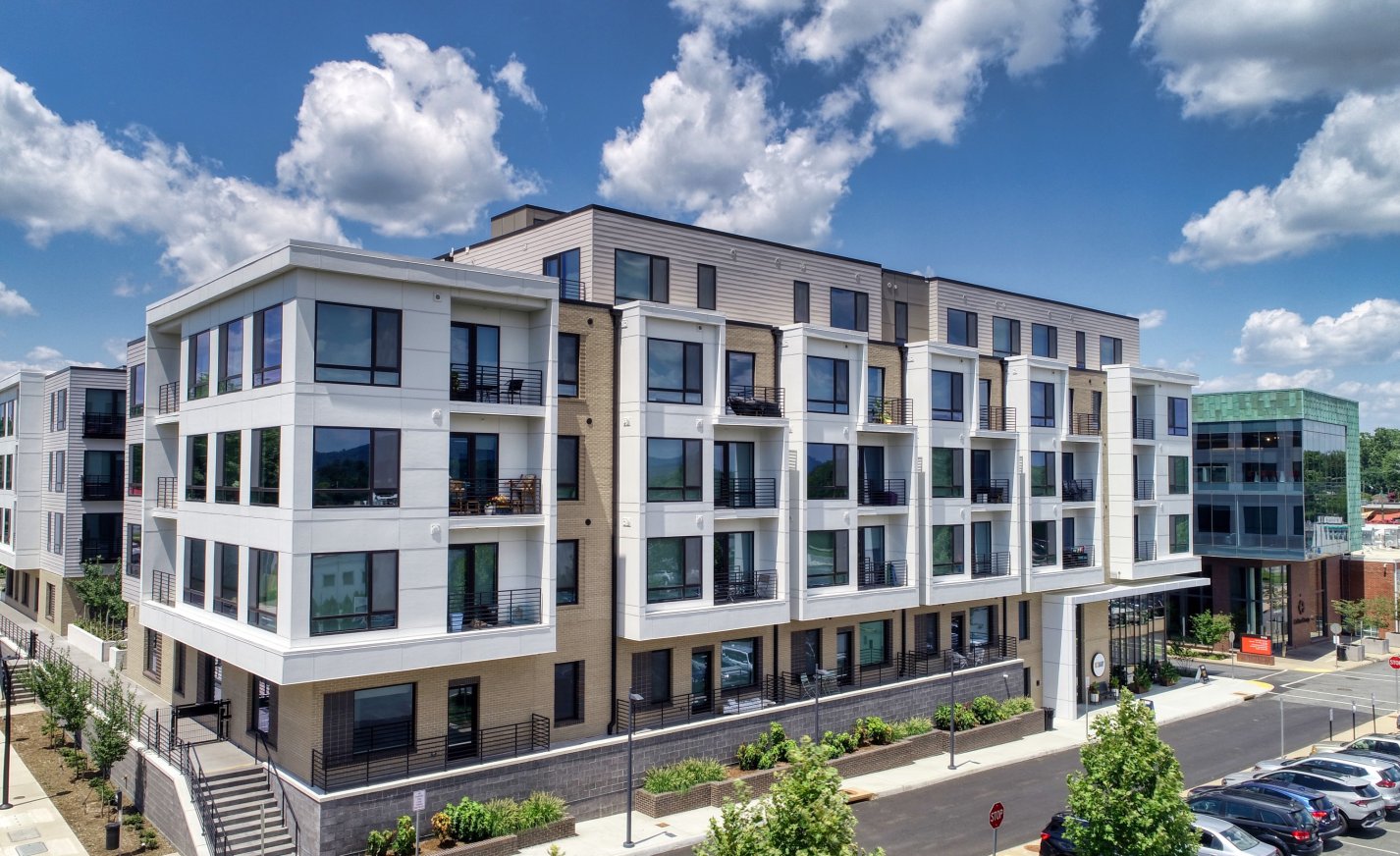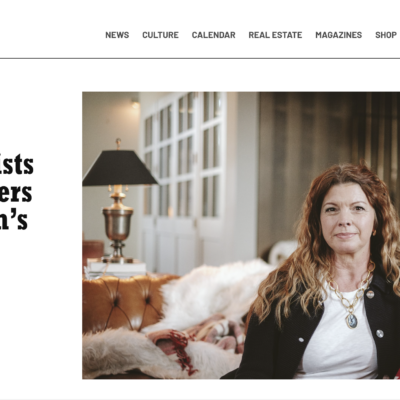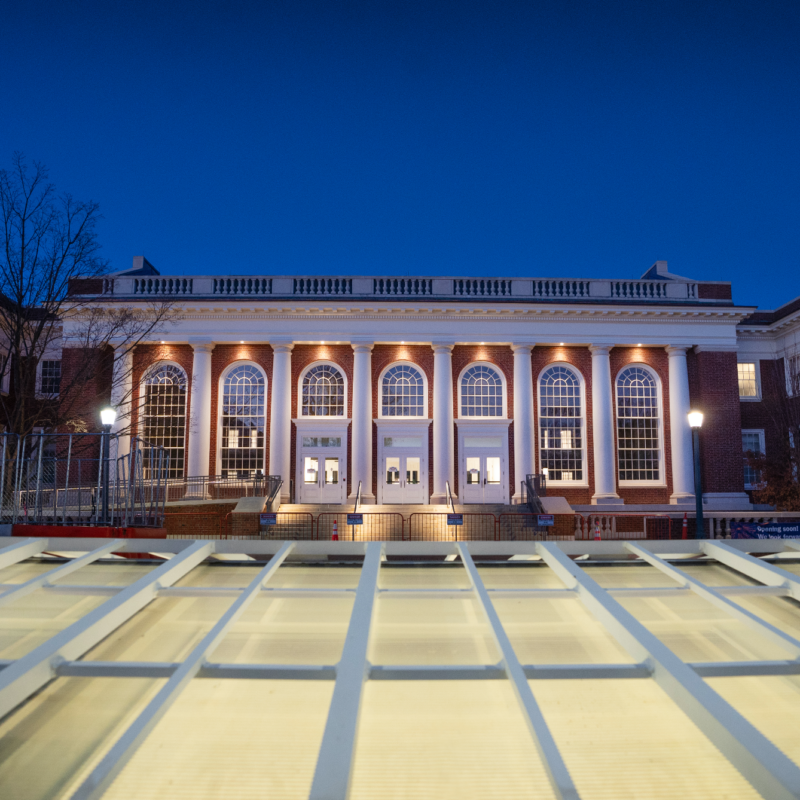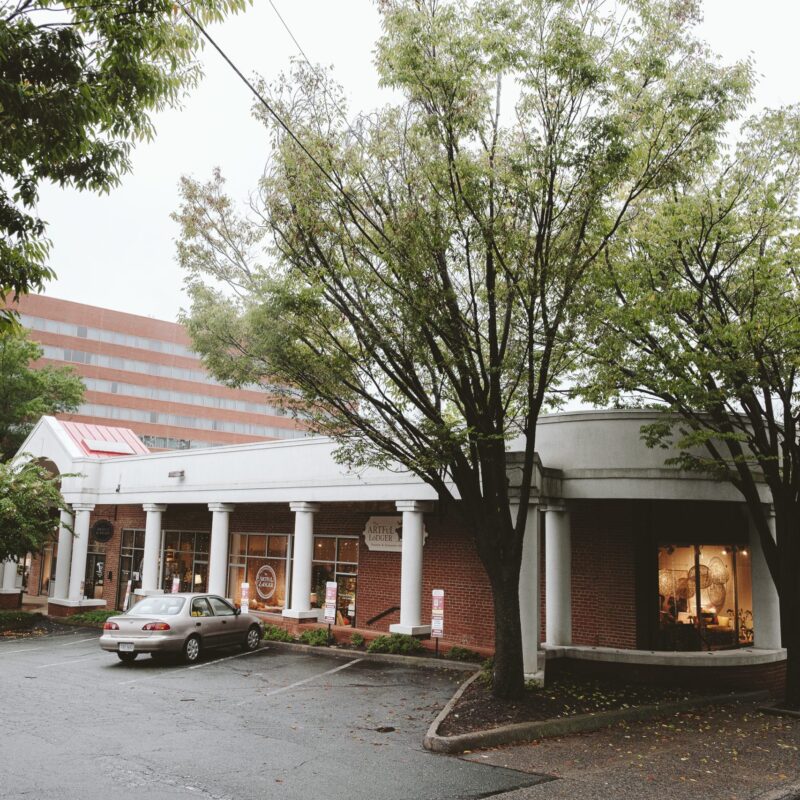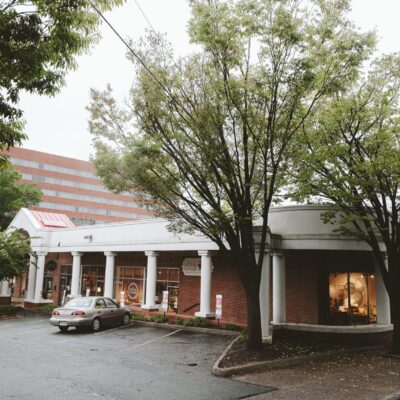The July 27 community meeting about the proposed Dairy Market expansion quickly turned heated when residents of the 10th and Page neighborhood expressed their concerns and frustrations about the project.
Held at Old Trinity Church on the corner of Grady Avenue and 10th Street, the meeting included several easels, set up by Stony Point Development Group, with project plans. And while the plans did provide sufficient project visuals, they did not give 10th and Page neighbors the answers they wanted.
In Charlottesville, developers are required to hold a community meeting before applying for city permits, and they must notify residents within 500 feet of the proposed new development. The current expansion plans would triple the size of Dairy Market, resulting in the removal of several beloved community businesses, including the Twice is Nice thrift shops, Preston Suds laundromat, and Fifth Season Gardening.
While the potential loss of each of these businesses is troubling for the community, the forced closing of the laundromat is particularly problematic. Many of the houses in the 10th and Page neighborhood do not have washers and dryers, and the next closest laundry service is located on Hydraulic Road. For residents without reliable transportation, removing Preston Suds would make laundry expensive and inaccessible.
“They gonna have to walk all the way to Hydraulic Road just to wash their clothes,” said Vizena Howard, president of the 10th and Page Neighborhood Association, at the meeting. “You gonna give them bus fare? Are you going to give them a shuttle?”
Responding to concern about removing Preston Suds, SPDG President Chris Henry said plans for a new laundromat could potentially be added to the project plans. However, replacing the business with a new laundry facility would be complicated, especially given tensions between residents of Dairy Market apartments and the surrounding neighborhoods. Following up on Henry’s response, Howard asked, “Is it going to be for the [apartment] residents, are you going to need a key to get in?”
Residents are also worried about worsening the current parking situation in the neighborhood. While Dairy Market does have a pay-to-park lot, many people are parking along the streets of 10th and Page to avoid fees. Area Garlend, who lives close to Dairy Market, reported that people have left trash in her mailbox, and employees have been rude when parking in front of her house.
“You are coming into our space—and I do understand that if something is for sale or for rent, you guys have every right to come in and purchase—but I do think that it is important to include [the] neighborhood in that, and create community. And it’s been very separate,” said Garlend. “It seems like the only thing I’ve gotten is higher taxes.”
Beyond the proposed expansion, residents of the 10th and Page neighborhood report that developers have reneged on previous commitments to the community. From promises of a community center at Old Trinity Church to a lack of affordable housing in the new apartment complexes, many said they felt betrayed by developers. Of the 180 apartments at 10th and Dairy, only 15 are affordable units adjusted for those who are low income, based on the U.S. Housing and Urban Development guidelines. (The low-income 10th and Dairy apartments run between $300 and $600 less than their market-price equivalents, which start at $2,066 a month for a one-bedroom.)
At the core of the 10th and Page neighborhood’s concerns was the lack of a diversity, equity, and inclusion consultant or a community engagement leader. Leading the conversation, Zyahna Bryant, a local activist and Howard’s granddaughter, expressed her frustration about the lack of DEI consideration given to a project that’s located in a historically Black neighborhood that’s experiencing rapid gentrification—a project that uses images of Black women on the outside of its building, despite a lack of Black business owners inside the complex.
While the Dairy Market project is not located at the site of Vinegar Hill, many people drew connections between the current development and the Black neighborhood that was destroyed in the name of urban renewal in 1964.
“All this was Vinegar Hill at one point in time,” said activist Rosia Parker.
Responding to frustrations at the lack of DEI oversight or community consideration, Henry said the group will take it into consideration. “I’ll tell you I also know that I’m not the right person to put that together. I’m happy to provide all the help and connections and support,” he said. “It needs a different leader, it can’t be me.”
“I agree,” said Bryant. “But you’ve gotta hire for it. Nobody [is] gonna keep doing free labor and having people’s forums in the middle of your gallery walks for free. You’re gonna have to do some paying, some salaries, something.”
“You’re asking the residents to meet you where they’re at,” Bryant said. “But you’re not meeting them where they are.”
While Stony Point Development Group has indicated that it will delay going to the Planning Commission on August 8, as originally scheduled, the neighbors will continue to organize. Speaking toward the end of the meeting, activist Tanesha Hudson urged the 10th and Page community to show up at City Council meetings and any Planning Commission meetings about the project.
